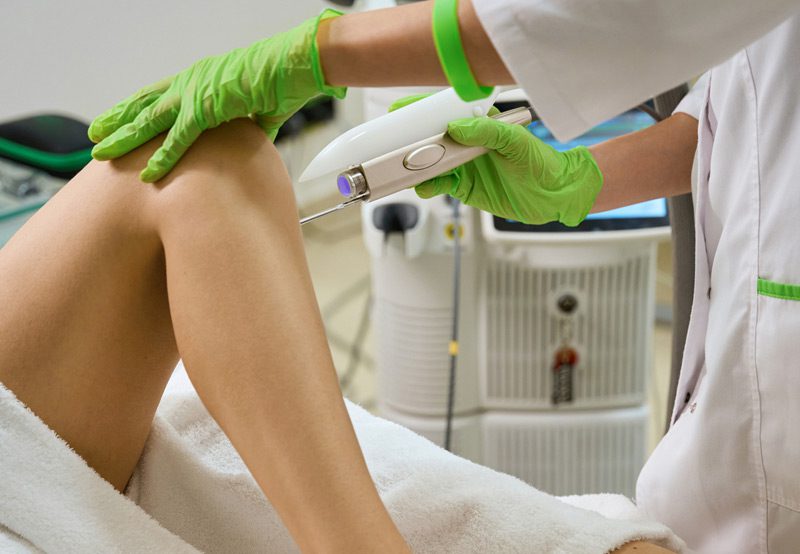

Laser treatments are an advanced, minimally invasive option for addressing a range of menopause-related symptoms, particularly those associated with the genitourinary system. During menopause, the decline in estrogen levels can lead to changes in the vaginal and urinary tissues, causing discomfort and other symptoms such as vaginal dryness, urinary incontinence, and reduced libido. Laser therapy offers a solution by stimulating the body’s natural healing processes and promoting the regeneration of healthy tissues, helping to restore vaginal health and alleviate many menopause-related symptoms.
How Laser Treatments Help with Menopause-Related Conditions
- Vaginal Dryness and Atrophy: One of the most common and distressing symptoms of menopause is vaginal dryness, which can occur as a result of the thinning and loss of elasticity in vaginal tissues. Laser treatments, specifically fractional CO2 lasers, can help by stimulating collagen production and increasing blood flow to the vaginal tissues. This promotes healing and improves the moisture and elasticity of the vaginal walls. As a result, women may experience relief from dryness, discomfort during intercourse, and overall improvement in vaginal health. Laser therapy can also help alleviate the thinning of vaginal tissues, a condition known as vaginal atrophy.
- Genitourinary Syndrome of Menopause (GSM): GSM is a collection of symptoms that affect the genital and urinary areas, often caused by hormonal changes during menopause. These symptoms can include vaginal dryness, urinary urgency, frequency, and discomfort during sexual activity. Laser treatments can effectively address these issues by stimulating the regeneration of vaginal and urethral tissues. The treatment increases the thickness and elasticity of vaginal tissues, reduces dryness, and strengthens the vaginal wall. Additionally, laser therapy can improve pelvic muscle tone, which may help with urinary incontinence, a common concern for women during menopause.

- Urinary Incontinence: Many women experience urinary incontinence or leakage during menopause due to weakened pelvic muscles and changes in the vaginal and urethral tissues. Laser treatments can help address this issue by improving the strength and function of the pelvic floor. The heat from the laser stimulates collagen production, which helps tighten the vaginal tissues and pelvic muscles, reducing incontinence. Over time, this can lead to a reduction in the frequency and severity of urinary leakage, helping women regain control and confidence.
- Decreased Libido: Hormonal fluctuations during menopause can impact sexual desire and pleasure. The changes in vaginal health, such as dryness and atrophy, can also contribute to decreased libido. By improving vaginal health and sexual comfort, laser treatments may help women feel more confident and engaged in intimacy. The rejuvenating effects of laser therapy can enhance blood flow to the vaginal area, improving sensitivity and sexual function, which may ultimately contribute to an increase in libido.
Next Steps
If you’re experiencing symptoms of vaginal dryness, urinary incontinence, or discomfort related to menopause, laser treatments may be an effective solution. These treatments are non-invasive and require minimal downtime, making them a convenient option for women seeking relief from these common menopause-related issues. To determine whether laser therapy is the right option for you, it’s important to consult with a healthcare provider specializing in menopause care.
